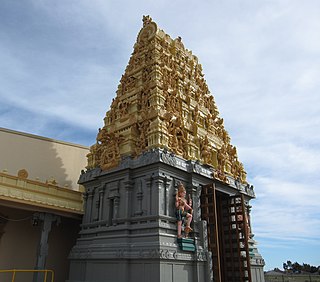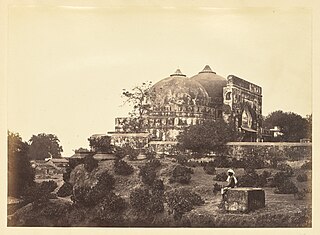Related Research Articles

Iconoclasm is the social belief in the importance of the destruction of icons and other images or monuments, most frequently for religious or political reasons. People who engage in or support iconoclasm are called iconoclasts, a term that has come to be figuratively applied to any individual who challenges "cherished beliefs or venerated institutions on the grounds that they are erroneous or pernicious."

Arson is the act of willfully and deliberately setting fire to or charring property. Although the act of arson typically involves buildings, the term can also refer to the intentional burning of other things, such as motor vehicles, watercraft, or forests. The crime is typically classified as a felony, with instances involving risk to human life or property carrying a stricter penalty. Arson that results in death can be further prosecuted as manslaughter or murder. A common motive for arson is to commit insurance fraud. In such cases, a person destroys their own property by burning it and then lies about the cause in order to collect against their insurance policy.

Hinduism is the third largest religion in Australia consisting of more than 684,002 followers, making up 2.7% of the population as of the 2021 census. Hinduism is the fastest growing religion in Australia mostly through immigration. Hinduism is also one of the most youthful religions in Australia, with 34% and 66% of Hindus being under the age of 14 and 34, respectively.
Hindus have experienced both historical and ongoing religious persecution and systematic violence, in the form of forced conversions, documented massacres, genocides, demolition and desecration of temples, as well as the destruction of educational centres.

Anti-Hindu sentiment, sometimes also referred to as Hinduphobia, is a negative perception, sentiment or actions against the practitioners or religion of Hinduism. It exists in many contexts in many countries, often due to historical conflict. There is also scholarly debate on what constitutes Hinduphobia in the Western World.

Hinduism in Fiji is the second-largest religion, and primarily has a following among Indo-Fijians, the descendants of indentured workers brought to Fiji by the British as cheap labour for colonial sugarcane plantations. Hindus started arriving in Fiji starting in 1879 and continuing through 1920, when Britain abolished the slavery-like indenture system. Fiji identifies people as "Indo-Fijians" if they can trace their ancestry to the Indian subcontinent, Hindus form about 27.9% the population of Fiji.

The burning of the Jaffna Public Library by an organized mob of Sinhalese individuals took place on the night of June 1, 1981. The library's burning was one of the most violent examples of ethnic biblioclasm of the 20th century. At the time of its destruction, the library was one of the biggest in Asia, containing over 97,000 books and manuscripts.

Hinduism is the second largest religion in New Zealand. It is also one of the fastest-growing religions in New Zealand. According to the 2023 census, Hindus form 2.9% of the population of New Zealand. There are about 153,534 Hindus in New Zealand.

The Ayodhya dispute is a political, historical, and socio-religious debate in India, centred on a plot of land in the city of Ayodhya, Uttar Pradesh. The issues revolve around the control of a site regarded since at least the 18th century among many Hindus to be the birthplace of their deity Rama, the history and location of the Babri Masjid mosque at the site, and whether a previous Hindu temple was demolished or modified to create the mosque.
Many adherents of Buddhism have experienced religious persecution because of their adherence to the Buddhist practice, including unwarranted arrests, imprisonment, beating, torture, and/or execution. The term also may be used in reference to the confiscation or destruction of property, temples, monasteries, centers of learning, meditation centers, historical sites, or the incitement of hatred towards Buddhists.

The Krishna Mandir is a Hindu temple (mandir) dedicated to the Hindu deity Krishna located in Ravi Road, opposite of Timber Market in Lahore, Punjab, Pakistan. In 2006, the temple became a centre of controversy due to media reports on its demolition which later turned out incorrect. In the contemporary era, it is one of two functional Hindu temples in Lahore, the other being Valmiki Mandir.

According to the most recent census in 2007, most people have a Christian background, with a sizable Hindu (27.9%) and Muslim (6.3%) minority. Religion tends to split along ethnic lines with most Indigenous Fijians being Christian and most Indo-Fijians being mostly Hindu or in some cases, Muslim.

The demolition of the Babri Masjid was carried out on 6 December 1992 by a large group of activists of the Vishva Hindu Parishad and allied organisations. The 16th-century Babri Masjid in the city of Ayodhya, in Uttar Pradesh, India, had been the subject of a lengthy socio-political dispute, and was targeted after a political rally organised by Hindu nationalist organisations turned violent.
In 1990, a series of attacks against the Bengali Hindus in Bangladesh occurred in late October and early November, following a rumour that the Babri mosque in Ayodhya in India had been demolished. The attacks on the Hindus began on 30 October and continued till 2 November.

The 1969 Gujarat riots involved communal violence between Hindus and Muslims during September–October 1969, in Gujarat, India. The violence was Gujarat's first major riot that involved massacre, arson, and looting on a large scale. It was the most deadly Hindu-Muslim violence since the partition of India in 1947, and remained so until the 1989 Bhagalpur violence.

On 28 February 2013, the International Crimes Tribunal sentenced Delwar Hossain Sayeedi, the vice-president of the Jamaat-e-Islami to death for war crimes committed during the 1971 Bangladesh Liberation War. Following the sentence, activists of Jamaat-e-Islami and its student wing Islami Chhatra Shibir attacked Hindus in different parts of the country. Hindu properties were looted, Hindu houses were burnt into ashes and Hindu temples were desecrated and set on fire. While the government has held the Jamaat-e-Islami responsible for the attacks on minorities, the Jamaat-e-Islami leadership has denied any involvement. Minority leaders have protested the attacks and appealed for justice. The Supreme Court of Bangladesh has directed law enforcement to start suo motu investigation into the attacks. The US Ambassador to Bangladesh expressed concern about attacks by Jamaat on the Bengali Hindu community.
The status of religious freedom in Oceania varies from country to country. States can differ based on whether or not they guarantee equal treatment under law for followers of different religions, whether they establish a state religion, the extent to which religious organizations operating within the country are policed, and the extent to which religious law is used as a basis for the country's legal code.
References
- ↑ "Girmit-era temple reduced to ashes", Archived Fiji Times, 17 October 2008
- ↑ "Historic Hindu temple burnt", Fiji Daily Post, 17 October 2008
- ↑ "Another Arson attack on Fiji's Hindu Temples", ABC Radio Australia, 17 October 2008
- ↑ "Another sacrilege in Fiji" Archived 17 July 2011 at archive.today , Fiji Broadcasting Corporation, 16 October 2008
- ↑ "Time to speak up" Archived 1 January 2008 at the Wayback Machine , Fiji Times, 17 October 2008